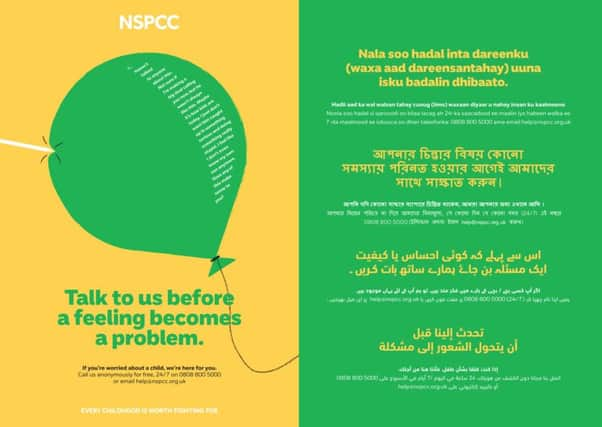Counter-extremism fight taken to Portsmouth GP surgeries


The posters will be written in English, Welsh, Arabic, Urdu, Somali, and Bengali, and are aimed at parents worried about radicalisation and terrorism.
Children’s charity NSPCC is running the pilot at 1,000 GP surgeries in the country, including at 22 in Portsmouth.
Advertisement
Hide AdAdvertisement
Hide AdThe city was classed as a second-tier area for Prevent, the Home Office’s counter-extremism scheme, in the wake of several young men travelling to fight in Syria.
All but one of the men, including so-called celebrity-jihadi Ifthekar Jaman, who travelled in May 2013, have died fighting with Isil.
Now the posters will be put up in waiting rooms to let people know about the NSPCC service. It was set up after terror attacks and a growing problem of children being targeted by extremists.
An NSPCC spokesman said: ‘We have seen a wave of terrorist attacks in recent weeks and months and both parents and children tell us how frightened they are by what is happening.
Advertisement
Hide AdAdvertisement
Hide Ad‘So it is vital that we are here for parents when they need our support and are able to provide them with non-judgmental advice on issues ranging from the wider terrorist threat to the dangers of radicalisation.
‘We have circulated posters around the country to try and reach as many parents as possible, and make the line as accessible as possible.
‘Of course, the fact that a young person might hold extreme or radical views is not a safeguarding issue in itself.
‘But when young people are groomed for extremist purposes and encouraged to commit acts that could hurt themselves or others, then it becomes abuse. That’s why we’ve trained our counsellors to cope with this fresh danger to young people.’
Advertisement
Hide AdAdvertisement
Hide AdThe NSPCC is offering help after adults called their helpline about the problem.
Previously, the only places families could raise concerns were through government agencies, including MI5 and anti-terror hotlines, and law enforcement agencies.
Signs of radicalisation include: children isolating themselves, talking as if scripted from a speech, increased levels of anger and being disrespectful or asking inappropriate questions.
Counsellors on the helpline will inform authorities if they believe a child is at risk.
Call 0808 800 5000